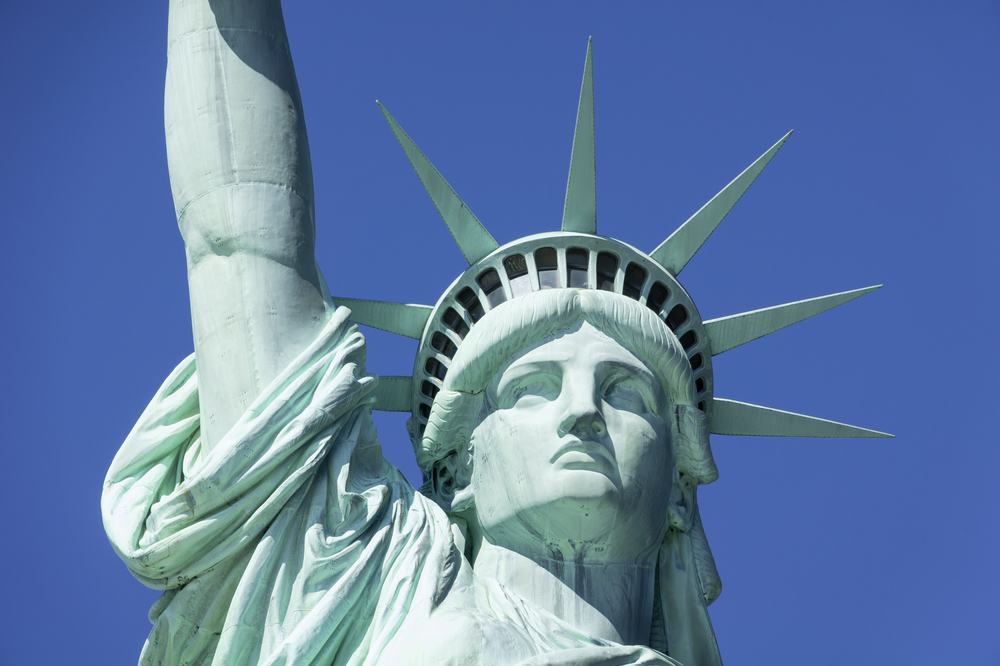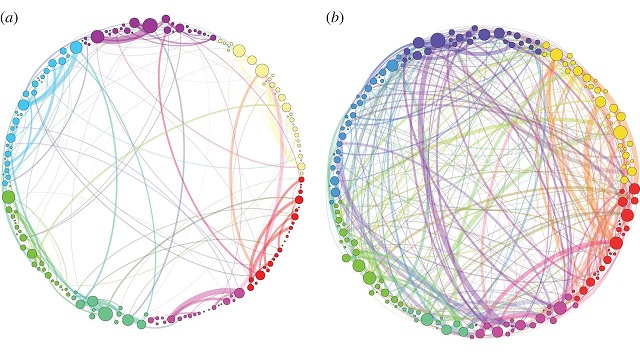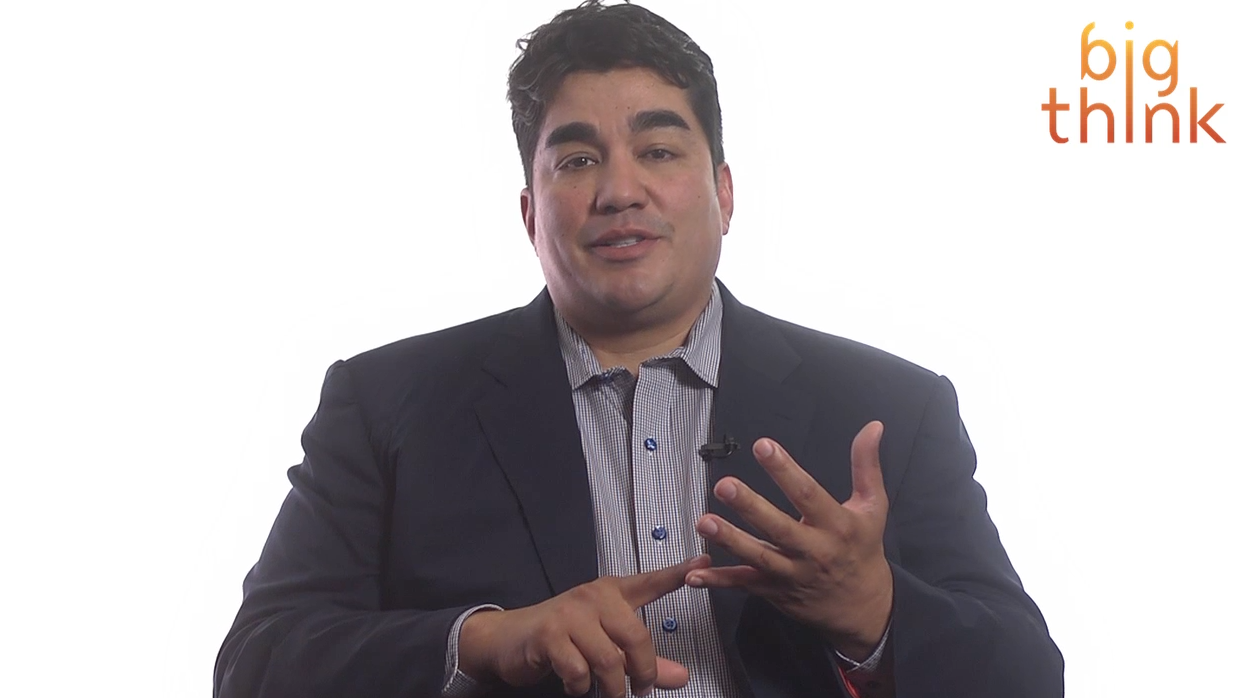Surprising Science
All Stories
French researchers have developed an equation that, after accounting for specific variables, can inform runners and coaches of the optimal strategy for winning a race.
Best-selling author Steven Kotler discusses hypofrontality — literally the slowing of the brain’s prefrontal cortex — and how it allows one to enter an optimal state of consciousness, known as flow. As Kotler explains, flow refers to those moments of total absorption when we get so focused on the task at hand that everything else disappears
Even if our behavior is in some sense determined by forces unavailable to the conscious mind, people are willing to uphold their belief in free will.
We’ve known for a very long time that our body language influences others. What we’re only now beginning to understand is how our body language alters the way we ourselves perceive the world.
Scientists and mathematicians hope to unlock the secrets of psilocybin, a compound found in magic mushrooms, in order to better understand how networks in the brain connect in uninhibited states.
When someone is diagnosed with any life-threatening disease, focus is taken off things they used to enjoy and the illness becomes an all-consuming part of their lives. Practicing mindfulness can help boost patients’ mental health and wellbeing.
Human irrationality is nothing new. But sometimes we get a fresh reminder that the human capacity for clear thinking is hampered by all kinds of stumbling blocks, and that our […]
The urge to eat when you’re not hungry can be a crutch that prevents you from addressing a mental or emotional affliction. Find out the cause of your real hunger and leave the pumpkin pie in the fridge.
A new ebola-awareness song recorded by an array of popular West African musicians hits the airwaves across the continent this week. The lyrics offer information for how to stay safe amidst the outbreak.
If a freak incident leaves you medically incapacitated, are your loved ones prepared to make medical decisions in line with your wishes? If not, it’s time to take action. It never hurts to be prepared.
Will future historians condemn our present era as barbaric because our political institutions have failed to take bold steps toward halting the flow of greenhouse gasses into the atmosphere?
Researchers have found that consuming high levels of antioxidants–specifically the kind present in dark chocolate–can improve the memory of aging persons by up to twenty-five percent.
According to designers at the Centre for Process Innovation, airplane windows are unnecessarily heavy and should be replaced by light-weight OLED screens projecting images from outside the plane on the inner walls.
Representative Tim Ryan of Ohio hosts a biweekly meeting of “The Quiet Time Caucus,” in which House members and their staff are invited to participate in mindful meditation.
Increasingly, scientific research is being done in ways that seem to advocate the scientists’ point of view, more than to objectively and dispassionately represent “the facts.” Society is at risk when science is hijacked by advocacy-masquerading-as-objective-science, whether such distortion is done by researchers working for companies, governments, environmental groups, or just by scientists who allow their personal views to color the questions they ask and the way they describe and promote their findings.
When we see the future through rose-tinted lenses, we are less likely to take the action necessary to achieve our goals.
A new study reveals how a state of active curiosity stimulates the brain’s memory and pleasure centers, thus explaining why it’s so much more effective to employ learning strategies that spark students’ interest.
Even an Iron Chef can fall into the trap of letting his kids eat junk food. His secret to selling his kids on nutrition is to present good foods in forms and textures they enjoy.
There is a point beyond which life is no longer worth living, both because of diminished mental and physical capacities, and because of how the living will remember us.
Two U.N. rapporteurs have advised Detroit’s government that its actions risk violating international human rights norms as a result of its shutoff policy.
Some neuromyths — incorrect statements about how the brain works — have become “common knowledge,” repeated by educators and used to influence everything from public policy to parenting practices. It’s time for that to change.
The popular party drug causes the brain to release huge amounts of serotonin, dopamine, and other pleasure-inducing chemicals. But when the body seeks to restore equilibrium, sometimes too many of the chemicals get destroyed leaving the user with a depressing and lethargic hangover.
Some health advocates believe the public would eat healthier if they were informed just how much they’d have to exercise to work off a bowl of sugary cereal or a liter of cola.
Today is the 658th anniversary of the most significant seismic event in the record history of Central Europe. A magnitude 7.0 earthquake decimated the Swiss town of Basel and leveled every church within 30 km.
A Polish man paralyzed from the chest down since 2010 has regained the ability to walk after a new treatment transplanted cells from his nasal cavity into his spinal cord.
If our present scientific achievements pale in comparison to the grand gestures of putting a man on the moon and building nuclear weapons, it may be that our capacity to tell imaginative narratives is suffering.
An international survey of school teachers has found that the vast majority believes in myths about the brain and wrongly adapt their lessons to accommodate these myths.
Decades of neuroscientific research may be culminating in treatment to help those with short attention spans overcome their lack of focus.
Ebola is starting to pose a serious risk to public health in America. But the threat is not the disease itself. The real danger is a growing epidemic of fear, an infection that spreads much more readily than the virus, is far harder to treat, and which threatens to cause much more sickness and death. The longer this epidemic of fear persists, the greater the likelihood that fear of Ebola in the United States will harm public health far more than the deadly hemorrhagic virus itself.
Now that another Texas healthcare worker has contracted Ebola, and was allowed to fly commercial airlines before the diagnosis was made, health officials risk losing the public’s trust.





























